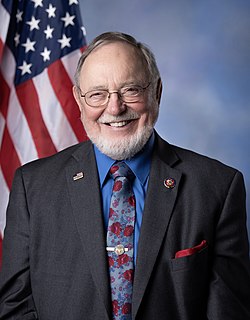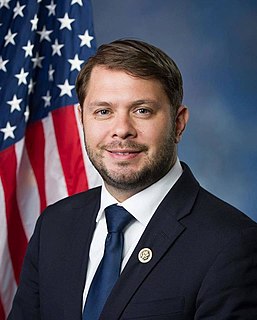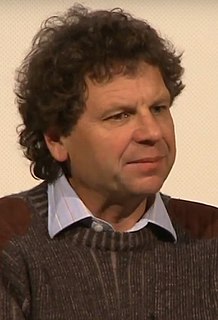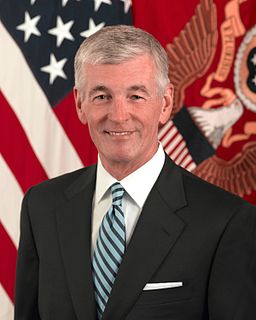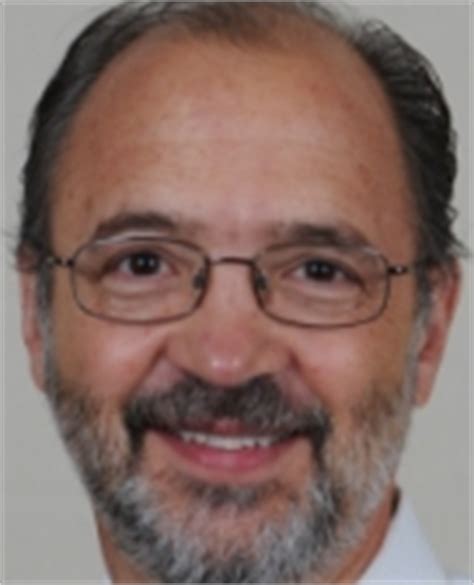A Quote by Michael Mullen
Some 70% to 80% of all who join the military will return to the civilian workforce. They'll return to communities, and one of the things I've worried about is the increasing disconnect between the American people and our men and women in uniform. We come from fewer and fewer places. We're less than 1% of the population.
Related Quotes
I am extremely proud of our remarkable men and women who serve in our military, but the reality is that this is a shrinking percentage of the American population. Unfortunately, this has resulted in a growing disconnect between our military and civilian population. At one time, we had participation from nearly every American. Victory gardens, metal collections, saving stamps and bonds-everyone did their part to support our military. We simply don't do that anymore.
I'm not a believer in predetermined fates, being rewarded for one's efforts. I'm not a believer in karma. The reason why I try to be a good person is because I think it's the right thing to do. If I commit fewer bad acts there will be fewer bad acts, maybe other people will join in committing fewer bad acts, and in time there will be fewer and fewer of them.
There is an undeniable economic and cultural disconnect between many of those who volunteer to serve and those who choose to remain civilians. But what is more concerning to me is the disconnect between our political leadership that applauds our soldiers and veterans, but then won't provide funding to properly armored vehicles or health care when our servicemen and women come home. You can't send men and women to war without being prepared to take care of them abroad and give them the services they need when they return home.
Investing intelligently in those of us who are marginalised means fewer people in jail, fewer homeless, fewer unemployed, fewer of us who are forlorn and depressed, fewer people addicted to things that drag us down... Because as we invest in those that do it tough, we will see more Australians taking pride in themselves, having realisable dreams and aspirations and making their own positive contribution to the world's greatest nation.
There's an idea that it's hard to be a woman artist. People assume that women have fewer opportunities, less power. But it's not any harder to be a woman artist than to be a male artist. We all take what we are given and use the parts of ourselves that feed the work. We make our way. Photographers, men and women, are particularly lucky. Photography lets you find yourself. It is a passport to people and places and to possibilities.
Absolutely love the new campaign from the Optimum Population Trust: do your bit for addressing climate change by having fewer children - or even no children. The lifetime CO2 emissions of a UK citizen amount to 750 tonnes (the equivalent - apparently - of 620 return flights between London and New York), so the extra 10 million by which our population will rise between now and 2074 will, over their lifetimes, emit around 7½ billion tonnes of CO2..."births averted" is probably the most single most substantial and cost-effective intervention that governments could be using
The world can use more light and less noise. More solvers and fewer blamers. More folks showing a better way and fewer folks complaining about how much better things used to be. More folks offering help and fewer folks wringing their hands about the problems. More hope bringers and fewer hope killers.
From time to time there will be some complaints that we are pushing our people too hard. I don't give a good Goddamn about such complaints. I believe in the old and sound rule that an ounce of sweat will save a gallon of blood. The harder we push, the more Germans we will kill. The more Germans we kill, the fewer of our men will be killed. Pushing means fewer casualties. I want you all to remember that.
You mentioned the Navy, for example, and that we have fewer ships than we did in 1916. Well, Governor, we also have fewer horses and bayonets because the nature of our military has changed. We have these things called aircraft carriers where planes land on them. We have these ships that go underwater, nuclear submarines.

